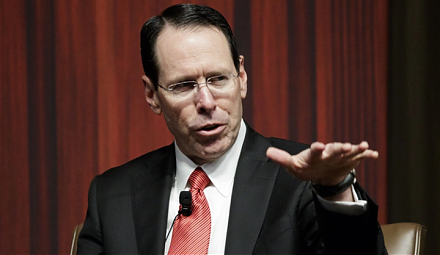

2017-12-15 07:42:00 Fri ET
stock market gold oil stock return s&p 500 asset market stabilization asset price fluctuations stocks bonds currencies commodities funds term spreads credit spreads fair value spreads asset investments
Disney acquires 21st Century Fox in a $52 billion landmark deal. This deal has a total value of about $66 billion while Disney assumes $14 billion of Fox's net debt. Bob Iger will remain Disney's CEO and key chairman to oversee this mega media integration until December 2021. In fact, the resultant Disney-Fox M&A deal will give Disney more media content when Disney launches its own video streaming service on demand.
The Economist suggests that as the Mouse acquires the Fox, this mega media deal will accelerate Hollywood's modern transformation from a film capital to a video streaming service town. Disney's ambitious acquisition of Fox and its own affiliates remains subject to approval by their shareholders and regulators, and this acquisition combines Disney and Fox as powerful film studios. Franchises such as Avatar and X-Men will join Disney's formidable library of Marvel titles, Pixar animation hits, and Star Wars films. In addition, Disney gains dozens of cable networks to add to its own collection, as well as Fox's equity stake in Sky, a European satellite broadcaster.
CNBC and CNN both report that if U.S. antitrust laws approve this mega media deal, it means stiffer competition for video streaming service providers such as Netflix, Amazon, and YouTube. As a consequence, film viewers and consumers benefit much from better content distribution and scale in this broad horizontal consolidation across the media industry landscape.
If any of our AYA Analytica financial health memos (FHM), blog posts, ebooks, newsletters, and notifications etc, or any other form of online content curation, involves potential copyright concerns, please feel free to contact us at service@ayafintech.network so that we can remove relevant content in response to any such request within a reasonable time frame.
2019-01-03 10:38:00 Thursday ET

American parents often worry about money and upward mobility for their children. A recent New York Times survey suggests that nowadays American parents spen
2022-03-05 09:27:00 Saturday ET

Addendum on empirical tests of multi-factor models for asset return prediction Fama and French (2015) propose an empirical five-factor asset pricing mode
2020-01-08 08:25:00 Wednesday ET

Conservative Party wins the British parliamentary majority in the general election with hefty British pound appreciation. In response to this general electi
2019-01-02 06:28:00 Wednesday ET

New York Fed CEO John Williams listens to sharp share price declines as part of the data-dependent interest rate policy. The Federal Reserve can respond to
2018-12-17 08:43:00 Monday ET

Apple files an appeal to overturn the recent iPhone sales ban in China due to its patent infringement of Qualcomm proprietary technology. This recent ban of
2019-01-01 03:34:48 Tuesday ET

American allies assist AT&T and Verizon in implementing 5G telecommunication technology in the U.S. as such allies ban the use of HuaWei 5G telecom equi